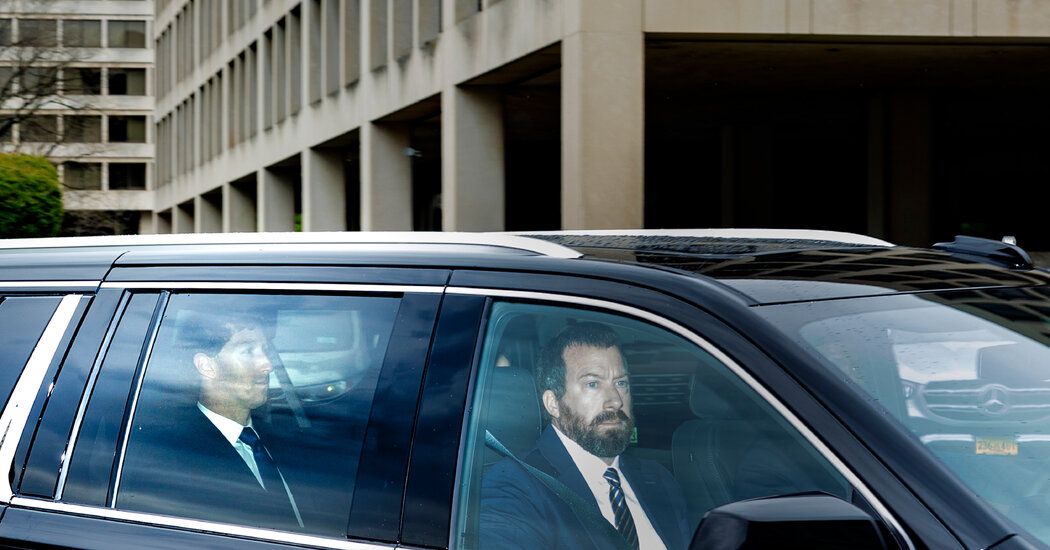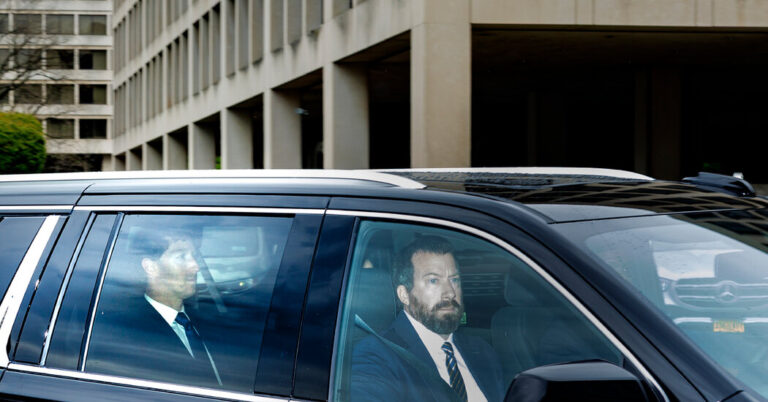On a second day on the stand of a reference antitrust process, Mark Zuckerberg, CEO of Meta, said he had purchased Instagram and WhatsApp because it was difficult to build new apps and dodge questions about the fact that he was trying to snure competitive threats to his company.
“Building a new app is difficult,” said Tuesday when he was asked why, in an E -mail of 2012 that was presented, he had intended to buy Instagram. “We probably tried to build dozens of apps on the company’s history and most of them don’t go anywhere.”
“We could have built an app,” he added. “Whether it happened or not is a matter of speculation.”
The testimony of Mr. Zuckerberg is fundamental for the antitrust process, held in the United States district court for the Columbia district. The CEO has spent about several hours on Monday by answering the laws of lawyers while trying to claim that Mr. Zuckerberg saw the other apps as rivals he needed to eliminate. During the interrogation, which sometimes became controversial, Mr. Zuckerberg often said he did not remember his thought process for some and -mail.
The case, Federal Trade Commission against Meta platforma, represents a consequent threat to the activity of Mr. Zuckerberg, who has co-founded as Facebook in his Harvard’s dormitory room in 2004. The FTC is asking Judge James E. Boasberg, who is chairing the case, to find the company to use a “buy-o-buy” strategy to kill the competition to kill competition acquired with competition as Instagnm and the case. Meta bought Instagram in 2012 for $ 1 billion and WhatsApp in 2014 for $ 19 billion.
In case of success, the government is likely to ask the judge to break the destination through the sale of the two apps.
However, the legal experts warned, the FTC has to face an uphill climb to win. The government is asking a judge to look back of a decade and show that Meta has remained powerful by canceling competitors through his acquisitions. The regulators approved Instagram and WhatsApp offers at that moment, raising questions about why, the experts said.
The cause against the goal is part of a wider push by US regulators to curb the power of the largest technological companies. The FTC also sued Amazon, accusing him of protecting a monopoly by shaking the sellers on his vast market and promoting his services.
The Department of Justice won a cause last year accusing Google of maintaining a monopoly in search and a procedure is set for next week to determine the remedies for violations. The Doj also sued Google for his domain in advertising technology. Apple was also a goal of a cause by the government, which accused him of making it difficult for iPhone and iPad users to leave his ecosystem.
During the opening declarations in the Meta Trial on Monday, the FTC said that the company’s Instagram and WhatsApp purchases cemented its power, depriving consumers of other social networks options and limiting competition.
The lawyers of Meta have denied the accusations of the opening of declarations, contrasting that the company has to face a lot of competition from Tiktok and other social media platforms. Trying to unlock the mergers after they were approved a decade ago would have created a dangerous precedent, the lawyers added.
Tuesday, the FTC lawyers pressed Mr. Zuckerberg to explain the internal communications that preceded the purchases of Instagram and WhatsApp, both who has subsequently purchased. The notes of Mr. Zuckerberg – some of which date back to 15 years ago – detailed fears about how his social media company, then known as Facebook, could compete on mobile devices.
Daniel Matheson, head of the Lide for the FTC, indicated the E -mail of 2012 between Mr. Zuckerberg and his managers, in which they exchanged candid thoughts on employees’ performances, potential and past acquisitions and the threat of pending competitors.
In one and -mail to Sheryl Sandberg, a former Operational Director of Meta, Mr. Zuckerberg told her that he could teach them to play settlers of Catan, a popular board game. He continued to criticize some lieutenants, saying that their late performance was one of the reasons they needed to buy Instagram for $ 1 billion.
“A billion dollars is very expensive,” said Zuckerberg standing.
In another E -mail of 2013, Zuckerberg told managers to block foreign competitors from advertising on Facebook, including popular Asian messaging apps such as Kakao and WeChat.
“Those companies are trying to build social networks and replace us,” he wrote. “Revenue is intangible for us compared to any risk”.
Mr. Zuckerberg should witness a total of seven hours. Mrs. Sandberg and Kevin Systrom, Instagram’s co-founder, will testify this week, said the FTC.





